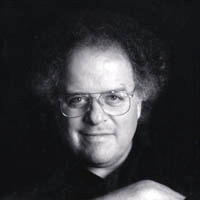Critic’s Notebook: An Odd Liederabend from Goerne and Kissin
Also reviewed for Die Presse: Ein Liederabend, bei dem vieles auf der Strecke blieb
R. Schumann, Dichterliebe, Liederkreis M.Goerne, V.Ashkenazy Harmonia Mundi |
J. Brahms, 4 Serious Songs, 4 Songs op.32 M.Goerne, C.Eschenbach Harmonia Mundi |
A Walrus in Love
The trick to turn a Liederabend from a connoisseur’s event into a big-ticket item, appears to be the addition of a pianist superstar to the singer in question. At the Musikverein’s Golden Hall, on March 13th, the magic ingredient to bolster Matthias Goerne’s already considerable draw was Evgeny Kissin. It makes sense, too, because in theory it’s much more interesting to hear, what two veritable artists come up with, as part of their collaboration, rather than simply having a singer be followed by an accompanist. I mean, no one goes to a concert to hear Helmut Deutsch – and few singers form as organic a duo with their ivory-partner, as do/does GerhaherHuber (one word)™.In practice, that didn’t quite work out on this occasion. For starters, the Golden Hall was decidedly not built for Lieder-recitals. When Lieder-singers hit the big-time, they almost invariably become the victim of their own success, location-wise. And yes, there were smile-inducing moments from Kissin, such as his brawny-pawed opening of Robert Schumann’s “Am Strand”. But for the most part, there seemed little input from him… or if there was, it didn’t appear to be picked up on by Goerne. (Certainly his understanding with Christoph Eschenbach as his pianist, for example, suggested more of a give and take, both, on record and live.)
Also: The whole evening was full of mannerisms galore. Goerne can barrel through a song and braw like a donkey. And a lot of fun it sometimes is. On this occasion, a red-faced Goerne danced as if on tippy-toes, contorting himself, and reminded vaguely of a lovelorn walrus. Much of Dichterliebe, for example, was purred in honeyed tones but mumbled in such nasal tones, that it had to be an interpretative choice. Albeit one I did not comprehend. Half the text was impossible to understand and sounded more French than German. This approach was interrupted occasionally, such as for the blistering “Die Rose, die Lilie”, or in stentorian turns for the last of the nine Brahms op.32 songs, “Wie bist du, meine Königin”. Here, Kissin, hunched over the keyboard as though he had forgotten his reading glasses at home, provided for tantalizing contrast with his tone, ringing out clear as a bell, and his lullaby-esque take on it.
But that was too little, too late. Too much text fell by the wayside. Whatever was left had a strangely impersonal quality about it and was – and this can’t just be blamed on Brahms – somewhat brittle and wearisome.

Follow @ClassicalCritic



























































